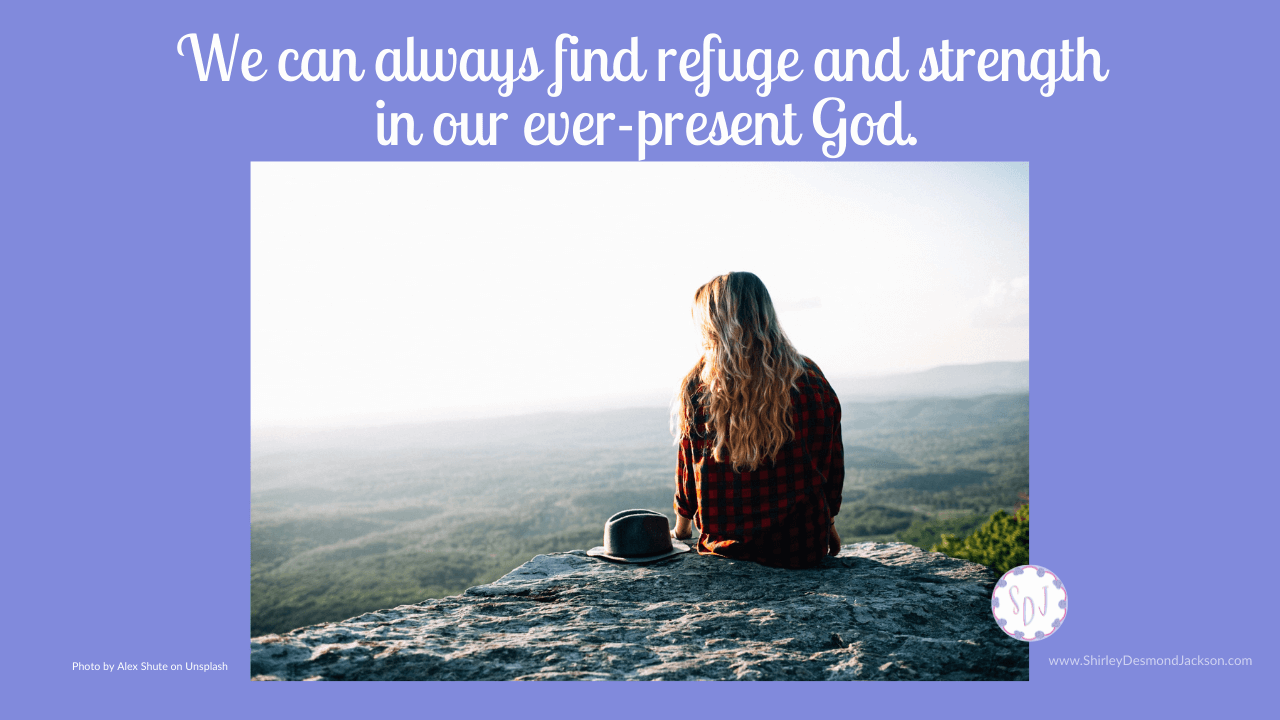How Can Christians Manage Our Fear Over World Events
As I turned on the TV, I hoped for better news. But sadly the situation in the Ukraine continues to escalate. Throughout the day, even as I prayed for peace and reconciliation, fear gripped my already heavy heart.
In search of comfort, I turned to one of my favorite passages, Psalm 46. In light of today’s events, I read it with fresh eyes.
The instructions for the psalm indicate it was to be used as a song of worship. It opens with a beautiful declaration of God’s faithfulness to His people:
God is our refuge and strength,
an ever-present help in trouble. (Psalm 46:1 NIV)
The Greek word for refuge, machaseh, carries the idea of a shelter, or a place to run when in danger. Oz, the Greek word translated as strength, also means might or power. The Israelites had a tumultuous history. Yet in this first verse they remember God as an ever-present source of both their protection and power.
The psalm then identifies two different types of tragedies: natural disasters (Psalm 46:2-3), and war (Psalm 46:6). Although God doesn’t remove His people from their troubles, His reassuring presence remains steadfast:
The Lord Almighty is with us;
the God of Jacob is our fortress. (Psalm 46:7 NIV)
The psalmist then invites us to look at the sovereignty of the Lord. According to His timing, dangers and troubles will pass. Wars will cease (Psalm 46:8-9). On the heels of this reminder, the narration of the psalm suddenly changes. Now we hear directly from the Lord:
He says, “Be still, and know that I am God;
I will be exalted among the nations,
I will be exalted in the earth.” (Psalm 46:10 NIV)
Whenever I’ve read this psalm in the past, I thought of being still as simply resting in the security of God’s sovereignty. But a closer study of this verse has given me new insight.
The phrase be still can also be translated as cease striving or stop. The Greek verb know, yada, means to acknowledge. In this context, the idea of being still means to stop what I’m doing and acknowledge the sovereignty of God. He alone will be exalted among the nations and in the earth.
I thought about this today as I frequently stopped my daily activities so I could pray with other Christians. My heart still breaks for the people caught in this tragedy. But by stopping and acknowledging God’s sovereignty, I found, in Him, the power to manage my fear.
The psalm ends with the same declaration of God’s faithfulness:
The Lord Almighty is with us;
the God of Jacob is our fortress.
While this psalm acknowledges the existence of troubles and tragedies, it opens and closes with a reassuring message: we can always find refuge and strength in our ever-present God.
Wherever you are in your life’s journey, I pray you can join with me in stopping and acknowledging the One who will be exalted in all the earth. And may we all find, in Him, our ever-present source of strength and protection.


Shirley, Love the reassurance and hope that we have in Jesus. It makes all that is going on around us not so scary, knowing we have Him to lean on.
Thank you Teresa! Acknowledging His sovereignty has helped me so much.????
Very encouraging—thank you!
Thank you so much Vida!????
Thank you, Shirley for your hope-filled message.
Thank you Sharon! ????